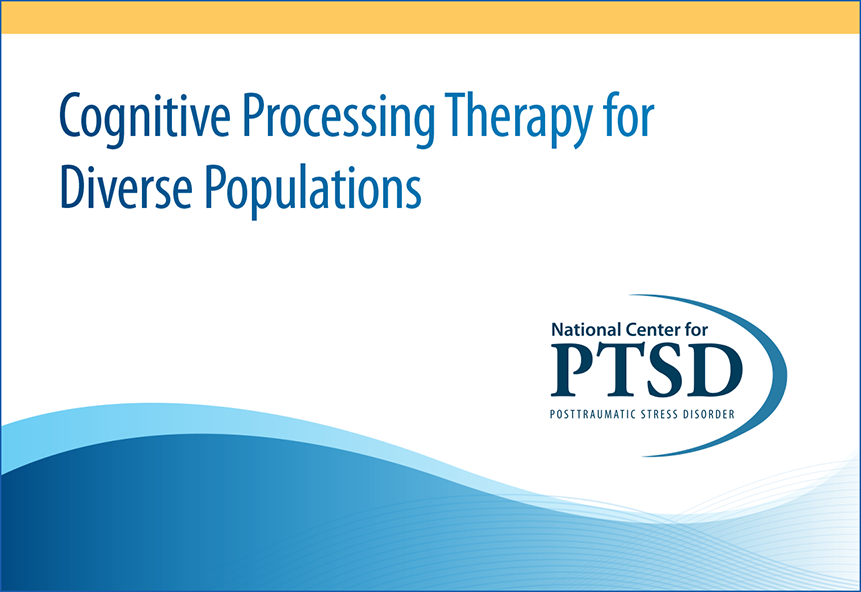PTSD: National Center for PTSD
Cognitive Processing Therapy for Diverse Populations
Continuing Education
This section brings together free in-depth Continuing Education resources for the Professional community concerned with trauma.
Cognitive Processing Therapy for Diverse Populations
- Date Created: 12/31/2023
- Time to Complete: 1 hour
- Credits: ANCC, APA, ASWB, ACCME, NBCC, Other Orgs
- Skill Level: Intermediate
- Course Series: PTSD 101
 Author(s):
Author(s):
Description
The PTSD literature has demonstrated support for brief, effective interventions but there is a gap in access to these treatments for ethnically and culturally diverse clients and for individuals residing in low- and middle-income countries. Often PTSD treatments are not developed for or tested with diverse patient populations. There is increasing evidence that evidence-based practices and cultural competency can be complementary.
This online course reviews the research conducted adapting Cognitive Processing Therapy (CPT) diverse patient populations, both within and outside of the U.S. The author describes various models and approaches for adaptation and discusses how these models, may inform clinical work with diverse Veterans to help make PTSD treatment more acceptable and accessible.
Goals and Objectives
- Describe approaches to cultural adaptation to CPT
- Identify at least one example of a modification to increase cultural fit
- Describe the current evidence base for CPT’s effectiveness when adapted for differing cultural groups
- Identify core elements of CPT that have remained consistent across adaptations for various patient populations


























